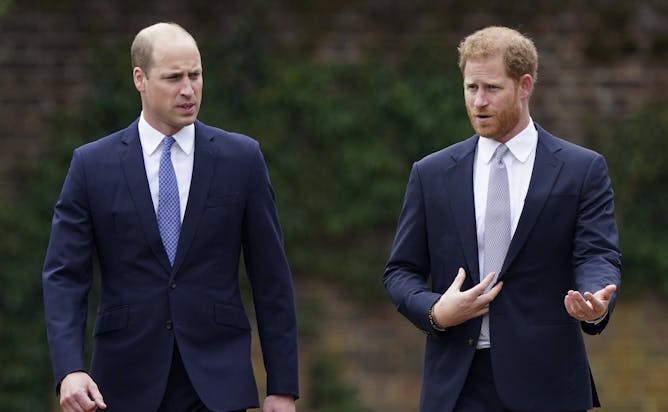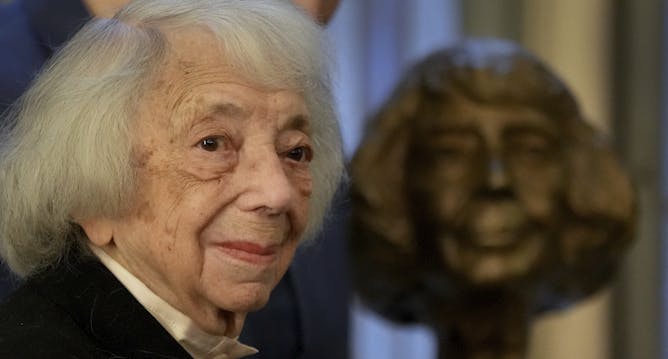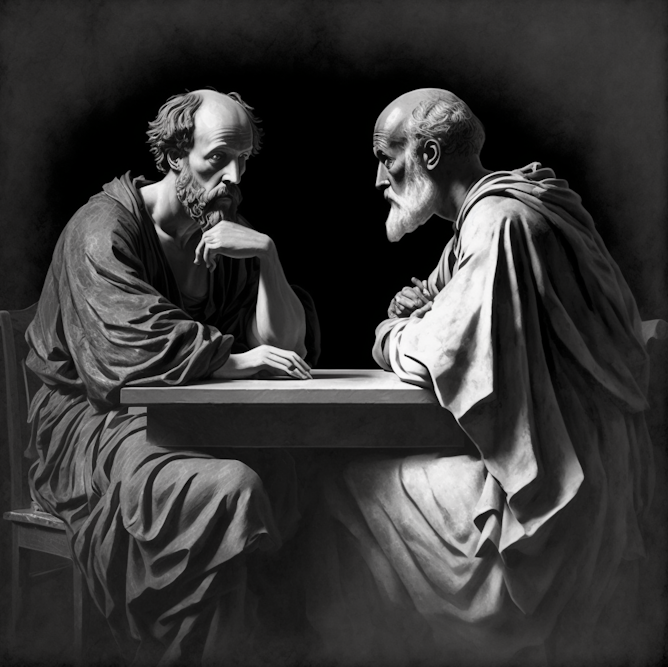|
In 2005, I covered the wedding of Prince Charles and Camilla Parker Bowles in Windsor, England. Only eight years after Princess Diana’s shocking death, I was impressed by how Princes William and Harry put on brave faces to support a relationship that had so tormented their late and adored mother. Harry, in particular, showed a lot of charm and good will that day — more so than his brother, who seemed less enthusiastic.
Almost 20 years later, and Harry’s record-breaking memoir, Spare, details how the young princes weren’t ever very close, how Harry was often neglected in favour of “the heir,” and how he suspects his father and brother planted negative stories about his bride, Meghan Markle, to deflect from potentially damning coverage of their own antics.
Today in The Conversation Canada, Ramona Alaggia of the University of Toronto uses research on sibling dynamics to examine the disintegration of the relationship between the two brothers. She writes how sibling relationships are heavily influenced by the health of the bigger family unit — and how dysfunctional families often find scapegoats in their ranks to distract from more serious issues. She writes: “Scapegoats take the heat for a family’s sins and help keep those sins hidden, especially in high-profile families.”
Also today:
Regards,
|

Prince William and Prince Harry arrive for the statue unveiling of their mother on what would have been Princess Diana’s 60th birthday at Kensington Palace in July 2021, a year after Harry departed the U.K. for the United States.
(Yui Mok/via AP)
Ramona Alaggia, University of Toronto
The relationship between Princes William and Harry is fractured, and can be explained by what’s known as the ‘family systems’ theory. Repairing it will require the Royal Family to change.
|

Holocaust survivor Margot Friedlaender attends the unveiling of a bust of herself in Berlin, Jan. 23, 2023.
(AP Photo/Michael Sohn)
Carson Phillips, Gratz College
Over 100 life stories of Holocaust survivors have been published through a Holocaust survivors’ memoir program. Listening to survivors narrate their stories is a powerful learning experience.
|

Emissions from space heating and cooling in homes represent almost six per cent of global greenhouse gas emissions.
(AP Photo/Alberto Pezzali)
Ekaterina Rhodes, University of Victoria; Meghan Corbett, University of Victoria
Policies that encourage the use of low-carbon technology like heat pumps can help motivate residents to decarbonize their homes.
|

An AI-generated image of two philosophers in dialogue. Today’s AI-driven chatbots follow a rich history of dialogue that goes back to the philosophers of ancient Greece.
Geoffrey M Rockwell, University of Alberta
The rise of AI chatbots provides an opportunity to expand the ways we do philosophy and research, and how we engage in intellectual discourse.
|
Business + Economy
|
-
Anthony Montgomery, Northumbria University, Newcastle
Burnout prevention needs to start with the organisation, not the employee.
|
|
COVID-19
|
-
Kata Farkas, Bangor University; Davey Jones, Bangor University
Nearly all the wastewater samples from aircraft arriving in the UK showed evidence of COVID-infected passengers on board.
|
|
Culture + Society
|
-
James Zarsadiaz, University of San Francisco
Once seen as the Chinese Beverly Hills, Monterey Park is now seen as Asian America’s ‘town square’ – the impact of a mass shooting there will ripple across the country.
|
|